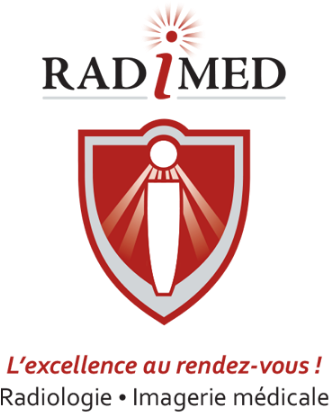Fluoroscopy/Barium Examinations
This radiological procedure is basic for the evaluation of your digestive system. Our team of radiologists performs this procedure with the assistance of one of our technologists.
Fluoroscopy uses a source of radiation (X-Rays) directed toward the patient, but in these examinations, the internal organs must be dyed in order to study them with a radiopaque material (barium). This will absorb more radiation and provide an image in single or double contrast (air may also be added) to study and analyze the structures better.
There is a dynamic aspect to all these studies, which is not found in general radiology. Therefore, the radiologist is often present during these procedures, because the final diagnosis will be both in terms of static images obtained and the dynamic component observed during the examination.
The examination technique chosen will differ, depending on the organ of the digestive system to be investigated. For examinations of the esophagus, stomach and small intestine, you will drink a barium mixture. Afterwards, the technologist and the radiologist will give you instructions for the various positions to be assumed in order to obtain the required images.
On the days following such exams, you must drink plenty of water to effectively get rid of all the liquid that the technologist made you drink and thus prevent possible constipation. Note that your stool will be whitish in the days following this examination, until the barium is completely expelled from the digestive system.
Radiology of the digestive tract allows the use of barium to observe the digestive system. This allows the radiologist to investigate the causes of stomach pain or blood in the stool.
Contraindication
Pregnancy is a contraindication for all examinations that require the ingestion of barium. *The results of your examination are sent to your referring physician in the days following its completion.
Exam offered:
-
Barium Swallow
Designed to study the area from the mouth to the stomach and recommended when there is difficulty in swallowing food. The patient is required to drink barium and stand for the duration of the examination.
No preparation. When the examination is completed, drink plenty of water to remove the barium.
-
Study of Small Intestine
Radiological examination using a radiopaque contrast medium to visualize the walls of the small intestine. This examination is recommended for the evaluation of problems of malabsorption or inflammatory disease such as Crohn’s disease.
Liquid diet* (see below) from 16 hours the day before your examination
Drink 300 ml of prune juice at 18 hours
Do not eat or drink anything after 22 hours the day before your examination
Do not take regular prescription medication until after the examination.
When the examination is completed, drink plenty of water to remove the barium.
* Description of the liquid diet:
- Drink 6 to 8 ounces of water every hour
- Water, Gatorade®, Jell-O®
- Filtered juice or without pulp
- Tea, coffee, herbal tea (with sugar but no milk)
- Beer (in moderation)
- Bouillon, clear consommé
-
Barium enema
This procedure focuses on the large intestine (colon).
You will be taken to the fluoroscopy room where, lying on a table, the radiologist will be able to observe the contrast medium inserted into your rectum through a small cannula. The radiologist will handle coloring the colon and distending it with air, as may be required. The technologist and the radiologist will guide you throughout your examination so you always have the right position for each photo required in order to image adequately all the segments of the colon. It allows the visualization of the anomalies of the wall of the colon, such as polyps and diverticula.During the examination, the radiologist may inject medication (Buscopan) intravenously or intramuscularly, to reduce intestinal cramping and obtain better pictures of your intestines.The absorption of a hot liquid helps to reduce cramps and gas.The radiologist will obtain several images that will be analyzed. After the examination, a report will be prepared and sent to your referring physician.
Contraindications
Pregnancy is a contraindication.
Side effects
You might feel cramps during a barium enema. The radiologist then will decrease the speed of the filling and may administer a medication to relieve spasms. Hot soup immediately after the examination could help reduce gas and cramps.
Barium is a thick substance that could cause some constipation; so it is recommended that you drink plenty of water on the days following the examination.
Liquid diet : (24 hours before the examination) | Clear broth, juice, jello, tea, coffee, no dairy products
Purchase PURGODAN or PICO-SALAX at the pharmacy. The day before the examination, drink the first packet at 08:00 and the second at 14:00. Drink plenty of water to be well hydrated while you take the laxatives.
-
Barium Meal
Designed to study the esophagus, stomach and duodenum (at the beginning of the small intestine) and often recommended to eliminate reflux or an ulcer.
Granules, forming gas, will be given before the barium.
Fast 12 hours before the examination. Do not drink, eat, smoke or chew gum. Do not take regular prescription medication until after the examination. You could be given Buscopan to relieve spasms (cramps).
When the examination is completed, drink plenty of water to remove the barium.





